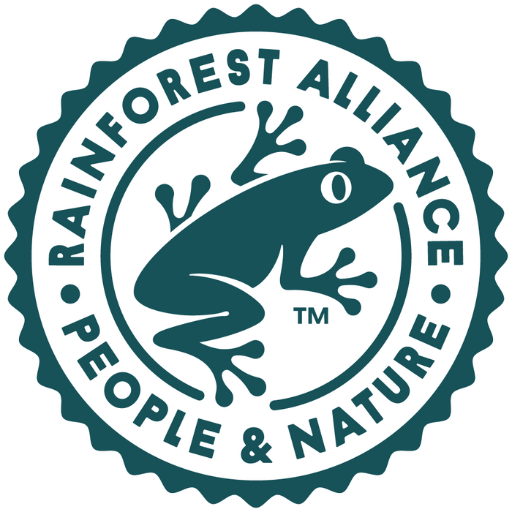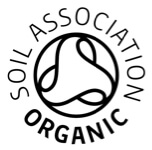Coffee Producers at Risk
Farmers and workers in the global south are often living on thin margins even during “normal” times. Though coffee is one of the most traded commodities in the world, millions of farmers still struggle to earn a decent income, which in some origins is resulting in abandonment of the profession by younger generations in search of better-paid work elsewhere.
The COVID-19 pandemic is yet another challenge added to coffee farmers’ long list of ongoing battles against the rising threat of crop disease, weather shocks resulting from climate change and price fluctuations, to name just a few. At present, the impact on Fairtrade coffee farmers remains unclear and unpredictable, however since COVID-19 has already slowed down the global economy, it is likely that sooner or later it will have a negative impact on our Fairtrade coffee farmers.
Global coffee prices are highly volatile right now due to uncertainty in the commodities markets caused by the COVID-19 pandemic. World market prices remain at low levels, hovering at around just $1.10 per pound, despite having risen over the past year. Whilst at home consumption is on the rise, demand for speciality coffee is likely to be affected due to social distancing measures which have seen cafes and restaurants across the globe close thus diminishing out-of-home coffee consumption, which may cause further volatility in prices.
The immediate vulnerability of farmers to economic damage depends on variables such as the timing of the harvest season which differs around the world. For example, the Rwandan harvest is now at its peak, whereas the Indian harvest has concluded. Coffee from Central America and Mexico has already been harvested, but around 60% of the harvest of Fairtrade coffee, from Peru, Colombia and Brazil, occurs between April and August and remains unpicked meaning lock-downs and social distancing could spell disaster for farmers’ yields.

Whether on harvesting, milling or transport of coffee, movement restrictions are likely to have a negative impact in some way or another for the majority of coffee producers. In several high-volume producing regions, there are increasing reports of restrictions on the transport and export of goods, including reported shortages in packaging, transport drivers, market and auction closures, and shipping and freight delays caused by port restrictions, border closures and lockdowns. For coffee farmers, this could mean a reduction in a vital source of income, putting the livelihood, food security and wellbeing of coffee farming communities at risk.
An additional factor impacting coffee sales is the inability of growers to provide buyers with samples of coffee lots. Purchases are often being held up by the closing of trading offices, with traders working from home and unable to get into their labs to cup samples. This could make it harder for producers to sell their coffee during the crisis as purchases may not be confirmed before coffee can be sampled.
On top of struggling with their businesses and income generation, COVID-19 represents a considerable high health risk to many coffee growing communities, where the majority of farmers live in remote areas with limited access to health care facilities.
While challenges may vary between region and indeed farm, one thing is certain – coffee farmers need support now more than ever, and Fairtrade is working to protect all farmers during this time of unprecedented uncertainty.
Fairtrade Safety Net More Important Than Ever
In these uncertain times, where implications of COVID-19 are exacerbating the already precarious situations for many coffee farmers, the benefits of Fairtrade are more vital now than ever. The Fairtrade Minimum Price is a safety net for Fairtrade coffee producers during this time, ensuring they receive a guaranteed price of US$1.40 per pound for Arabica, and an additional 30 cents per pound for organic coffee. On top of this they receive the Fairtrade Premium of 20 cents per pound. This Premium is an extra sum on top of the selling price that cooperatives earn on every Fairtrade sale, and invest in projects of their choice to benefit their businesses and communities. In 2018, Fairtrade coffee cooperatives earned 76,605,525 Euros, which was spent on a range of social and environmental initiatives including school buildings, replanting of plantations, productivity improvements, recycling and waste management and reforestation. Ketra Kyosiimire, a Fairtrade Coffee Farmer from Ankole Coffee Producers’ Co-operative Union Ltd in Uganda, highlights in the video below some of the ways in which Fairtrade Premium has been spent, prior to the pandemic.
Since the outbreak of Covid-19, Fairtrade is continuing to actively contact producer organisations to respond to their needs quickly and effectively. One such measure, has been Fairtrade International’s announcement on April 1st to increase flexibility in its Standards. These temporary changes are enabling producer groups to take immediate action to protect the health and livelihoods of workers and their communities in response to the pandemic. This includes allowing producer organisations to spend Fairtrade Premium funds more flexibly to minimise the spread of disease.
Cooperatives can now choose to use Premium funds, for instance, to pay out as emergency cash payments, purchase and distribute face masks or other PPE, or implement hygiene campaigns in their communities. Producer groups can also now make faster decisions on spending Premium funds on the COVID-19 response, and can take action without waiting for approval at their required annual General Assembly meetings, and will instead document expenditures for retroactive ratification.

“Many farmers and agricultural workers in the global south are already beginning to feel the economic effects of COVID-19, although in many cases the health impacts are still to be seen,” said Gelkha Buitrago, Fairtrade International’s Director of Standards and Pricing. “The new guidance we have just approved makes it possible for Fairtrade certified producer organisations to make decisions and act quickly on things that will keep farmers and workers safe, or provide needed extra income during this uncertain time.”
Fairtrade Together: Funding COVID-19 interventions with Fairtrade Premium
There have already been numerous examples of Fairtrade coffee producer organisations demonstrating solidarity during this precarious time and coming together to spend Premium on supporting their local communities.
In Peru, the government has arranged to provide subsidies to support the population with the most limited resources since initiating lockdown, yet it has not been possible to reach the entire population. To support government efforts, a number of coffee cooperatives have used their Premium to purchase provisions for food supply kits to distribute to members and among the elderly of the community. For the elderly, people with limited mobility, or those facing food insecurity, this support from the cooperatives is crucial.
It’s another way that Fairtrade certified producers in Peru – and across the globe – are making a big difference during this time. In Uganda, there are further reports of coffee cooperatives stepping in to support government aid to vulnerable members of the community using Fairtrade Premium to purchase essential items.
In Brazil, one coffee cooperative has put together Fairtrade Premium funds to purchase and donate a ventilator to the local hospital, whilst in Colombia we’ve had reports of Fairtrade cooperative leaders doing shopping and delivering food and supplies door to door to prevent members going into down and support the government with encouraging social distancing.
We’ve also had reports of Fairtrade cooperatives taking initiatives to raise awareness about prevention of the spread, such as KADERES cooperative in Tanzania who have taken to community radio to raise awareness among coffee farmers on COVID 19 causes, effects and prevention measures.
These acts of solidarity amongst Fairtrade cooperatives are by no means isolated instances, and are a testament to the Fairtrade community spirit, which is more apparent than ever in the current face of adversity.
Keep Apart, Stay United
This global pandemic has highlighted more than ever that we are all connected, not just in our towns and cities but also across the world. Just as new viruses like COVID-19 crisscross the globe, so do supply chains. Many farmers and agricultural workers are going to work each day to keep the world’s food supply intact. By supporting Fairtrade coffee farmers and workers during these times, and continuing to buy from Fairtrade cooperatives, we support them to protect the health and safety of their communities, to weather the economic challenges ahead, and to stand together in global solidarity.











